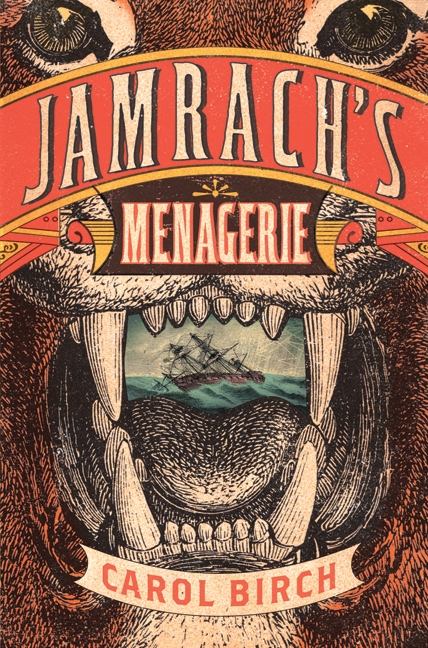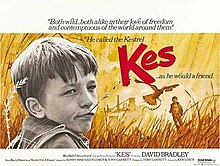11.11.11
Jamrach's Menagerie by Carol Birch
It tells the story of Jaff and his seafaring friends and their disastrous maritime adventure. Jaff is born in a poor working class slum, and works in a local hotel cleaning the vessels. Once while on one of his walks he falls for a Tiger on loose, that he tries to touch its nose in turn to get caught in its jaws. That simply implies to his fascination for animals, birds and natural history. He says that is when he was born again.  Jamrach, an animal collector and an adventurer himself, rescues him and takes him to his unique menagerie of exotic animals and Jaff just finds where he wants to belong. That is when a ship is chartered for Dutch East indies on a mission for Jamrach, and Jaff couldn't resist from signing up for it. Thus begins the ride through the turbulent Atlantic and peaceful Pacific into Dutch East Indies like the good old Jack Sparrow.
Jamrach, an animal collector and an adventurer himself, rescues him and takes him to his unique menagerie of exotic animals and Jaff just finds where he wants to belong. That is when a ship is chartered for Dutch East indies on a mission for Jamrach, and Jaff couldn't resist from signing up for it. Thus begins the ride through the turbulent Atlantic and peaceful Pacific into Dutch East Indies like the good old Jack Sparrow.
They arrive at the Dutch east Indian colony, possibly one of the present Indonesian islands, to capture the dragon(iguanas) and take it back to the ship. Somehow the hell breaks loose after that animal arrives in the ship. A maritime adventure has one thing inevitable, storm and a shipwreck. I was anyways waiting for that to happen. Now that happened in their return journey to Valparaiso. That journey would test their spirit of comradeship and friendship against instincts for survival as the ship gets caught in a deadly maelstrom and is crushed, leaving them to take refuge in two boats against the violent ocean. As their supplies starts running out, so does their sanity. When caught in a calamity, somethings have to be forgotten and some unforgivable choices have to be made for the survival of the most. For the survivors it would leave scars irreparable for lifetime.
I first found this book to be in league with children's adventure book and was wondering how it got nominated for Booker. The characters, apart from few important ones, were rather flat and the story proceeds mostly on the strength of narration. Even then the journey and the menagerie of sailors entertained themselves with wit, songs and hope for adventure. But soon, as the tragedy befalls, and the waters started getting murkier, as the adventure ends and horror begins, the mood of the novel turns darker. The final chapters of Part 2 just shies away from sickening the readers while the Part 3 tries to rehabilitate the shattered spirits. The second half of the book somehow reminded me of the "Rime of the Ancient Mariner" by Samuel Taylor Coleridge. "Water water everywhere, not a drop to drink". It is an unforgettable adventure.
 Jamrach, an animal collector and an adventurer himself, rescues him and takes him to his unique menagerie of exotic animals and Jaff just finds where he wants to belong. That is when a ship is chartered for Dutch East indies on a mission for Jamrach, and Jaff couldn't resist from signing up for it. Thus begins the ride through the turbulent Atlantic and peaceful Pacific into Dutch East Indies like the good old Jack Sparrow.
Jamrach, an animal collector and an adventurer himself, rescues him and takes him to his unique menagerie of exotic animals and Jaff just finds where he wants to belong. That is when a ship is chartered for Dutch East indies on a mission for Jamrach, and Jaff couldn't resist from signing up for it. Thus begins the ride through the turbulent Atlantic and peaceful Pacific into Dutch East Indies like the good old Jack Sparrow. They arrive at the Dutch east Indian colony, possibly one of the present Indonesian islands, to capture the dragon(iguanas) and take it back to the ship. Somehow the hell breaks loose after that animal arrives in the ship. A maritime adventure has one thing inevitable, storm and a shipwreck. I was anyways waiting for that to happen. Now that happened in their return journey to Valparaiso. That journey would test their spirit of comradeship and friendship against instincts for survival as the ship gets caught in a deadly maelstrom and is crushed, leaving them to take refuge in two boats against the violent ocean. As their supplies starts running out, so does their sanity. When caught in a calamity, somethings have to be forgotten and some unforgivable choices have to be made for the survival of the most. For the survivors it would leave scars irreparable for lifetime.
I first found this book to be in league with children's adventure book and was wondering how it got nominated for Booker. The characters, apart from few important ones, were rather flat and the story proceeds mostly on the strength of narration. Even then the journey and the menagerie of sailors entertained themselves with wit, songs and hope for adventure. But soon, as the tragedy befalls, and the waters started getting murkier, as the adventure ends and horror begins, the mood of the novel turns darker. The final chapters of Part 2 just shies away from sickening the readers while the Part 3 tries to rehabilitate the shattered spirits. The second half of the book somehow reminded me of the "Rime of the Ancient Mariner" by Samuel Taylor Coleridge. "Water water everywhere, not a drop to drink". It is an unforgettable adventure.
3.11.11
Oru Deshathinte Katha
 I have finished reading SK Pottekkatt's 'Oru deshathinte katha'(Story of a Village). Jotting down some words about it. To summarize, this is a simple story of a village called Athiranipaadam spanning about 50years narrated mostly from the point of eye of the protagonist of the story Sreedharan. Just like Gabriel Garcia Marquez’s ‘One hundred years of solitude’, SK Pottekkat has created a world out of thin air through this novel consisting of innumerous characters entering and leaving its frame. Story starts with Sreedharan returning to the village he left 30 years ago, from there on as a flash back the story follows the birth of the village Athiranipadam and ends with its death (and a re-birth).
I have finished reading SK Pottekkatt's 'Oru deshathinte katha'(Story of a Village). Jotting down some words about it. To summarize, this is a simple story of a village called Athiranipaadam spanning about 50years narrated mostly from the point of eye of the protagonist of the story Sreedharan. Just like Gabriel Garcia Marquez’s ‘One hundred years of solitude’, SK Pottekkat has created a world out of thin air through this novel consisting of innumerous characters entering and leaving its frame. Story starts with Sreedharan returning to the village he left 30 years ago, from there on as a flash back the story follows the birth of the village Athiranipadam and ends with its death (and a re-birth).The book could be classified as a autobiographical, dramatic, humorous, tragic, adventurous, romantic, poetic piece of fiction. It is filled with short stories in the form of fables, real incidents, memoirs, history, flash-backs and rumors about all the colorful characters of that village, everyone well connected to the flow of the novel. The characters are very real and there would be someone whom you could always relate to . Their little adventures, romance, fights and grief is what this novel is all about. These stories would ultimately they leave some marks in our hearts, good or bad.
It is a period novel set in pre-independence Kerala and hence the story touches through the Feudalistic culture, incidents like Moplah rebellion, revolutions like gandhian independence struggle, world wars etc. As mentioned above major part of the novel is around the life of Sreedharan, the style of narration matures as he move from his childhood to Adulthood, from his schoolboy mind to a more matured adult. His dislike of mathematics and
 inclination towards the literatures and poetry later flowers into some fine poems through the novel.
inclination towards the literatures and poetry later flowers into some fine poems through the novel.Memories are tastier than imagination. This novel has that taste of memories. Like MT says in Kaadhikante Panippura ‘Stories are the unspeakable pain of writer’s heart’, as SK lets the memories flow out of him through his pen he lets those suppressed emotions also fill into the words. The episodes of Sreedharan’s childhood adventures, ‘Supper Sarkeet’ gang, Krishnanmaster, the Railway signal control room, Kunjappoo’s life, the Kunjikelu Melan’s contemptuous life, Kuloose Parangodan, Ammukutty etc vividly creates an Athiranipadam of imagination in the mind and at the end you will feel that so long you have been living in that village along with all these people.
Written in a very simple and colloquial language, it is a must read!
Subscribe to:
Comments (Atom)
